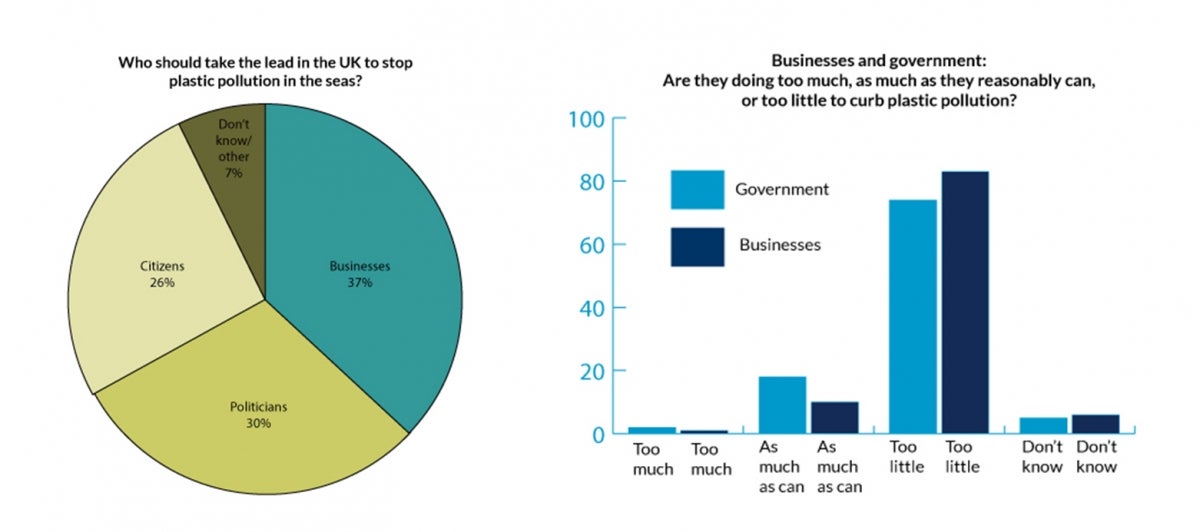UK poll: Majority of people believe banning single-use plastics is the best way to tackle ocean pollution
83% say businesses are not doing enough
83% say businesses are not doing enough
74% say government needs to do more
56% say banning single-use plastics would be most effective
Supermarkets top list of where consumers want to see less plastic
A new poll[1] by YouGov for Oceana (the largest NGO dedicated to ocean conservation) has revealed that the majority of people believe that banning single-use plastics is the best way to tackle ocean plastic crisis. It also exposed that neither the UK government nor UK businesses are doing enough to tackle the amount of plastic pollution in our oceans and seas.
The public opinion poll questioned over 2,000 British people with 83% saying businesses are not doing enough and 74% stating the government is doing too little to curb plastic in the oceans.
Ricardo Aguilar, Research Director at Oceana, said: “This poll makes it very clear how strongly the public care about this issue and that they badly want their government and businesses to do more”.
“They recognise that the most effective way to tackle the problem is at the source. People want businesses and supermarkets to take responsibility and reduce plastic production and look for more sustainable solutions”, added Aguilar.
Consumers are united in the need to clamp down on unnecessary plastic. With just 3% stating that businesses shouldn’t use less plastic, the vast majority (84%) want to see a reduction in supermarkets, followed by cosmetics (69%), household/cleaning products (65%) and in the hospitality sector at 63%.
When quizzed on the two most effective ways to reduce plastic litter in UK seas, respondents opted for banning single-use plastics (56%) – such as plastic bottles, cups, and shopping bags etc. – and improving recycling schemes (43%) – for example, by town councils or at the workplace. Surprisingly, beach clean-ups was selected by only 5% of respondents.
Notes to Editors :

Most of the rubbish that ends up in our seas comes from land. Oceana has long highlighted that the most worrying aspect is that we cannot see the damage that it causes, often accumulating deep in the sea.
In deep-sea areas, it takes longer for plastic to biodegrade. In all of Oceana’s 28 research expeditions across Europe, our scientists have discovered a variety of plastic litter in the oceans, including car tyres, computers, plastic bottles and entire rubbish bags on the sea bed – sometimes even recorded at 1,000 metres deep.
Plastic waste also causes critical harm to marine wildlife and ocean ecosystems. And, since plastic doesn’t simply biodegrade but continuously breaks down into smaller and smaller pieces, tiny plastic “microparticles” are known to have entered the human food chain.
[1] All figures, unless otherwise stated, are from YouGov Plc. Total sample size was 2076 adults. Fieldwork was undertaken between 18th – 19th December 2018. The survey was carried out online. The figures have been weighted and are representative of all UK adults (aged 18+).
Learn more about plastic in our oceans and what Oceana is doing to curb it
#BreakFreeFromPlastic

